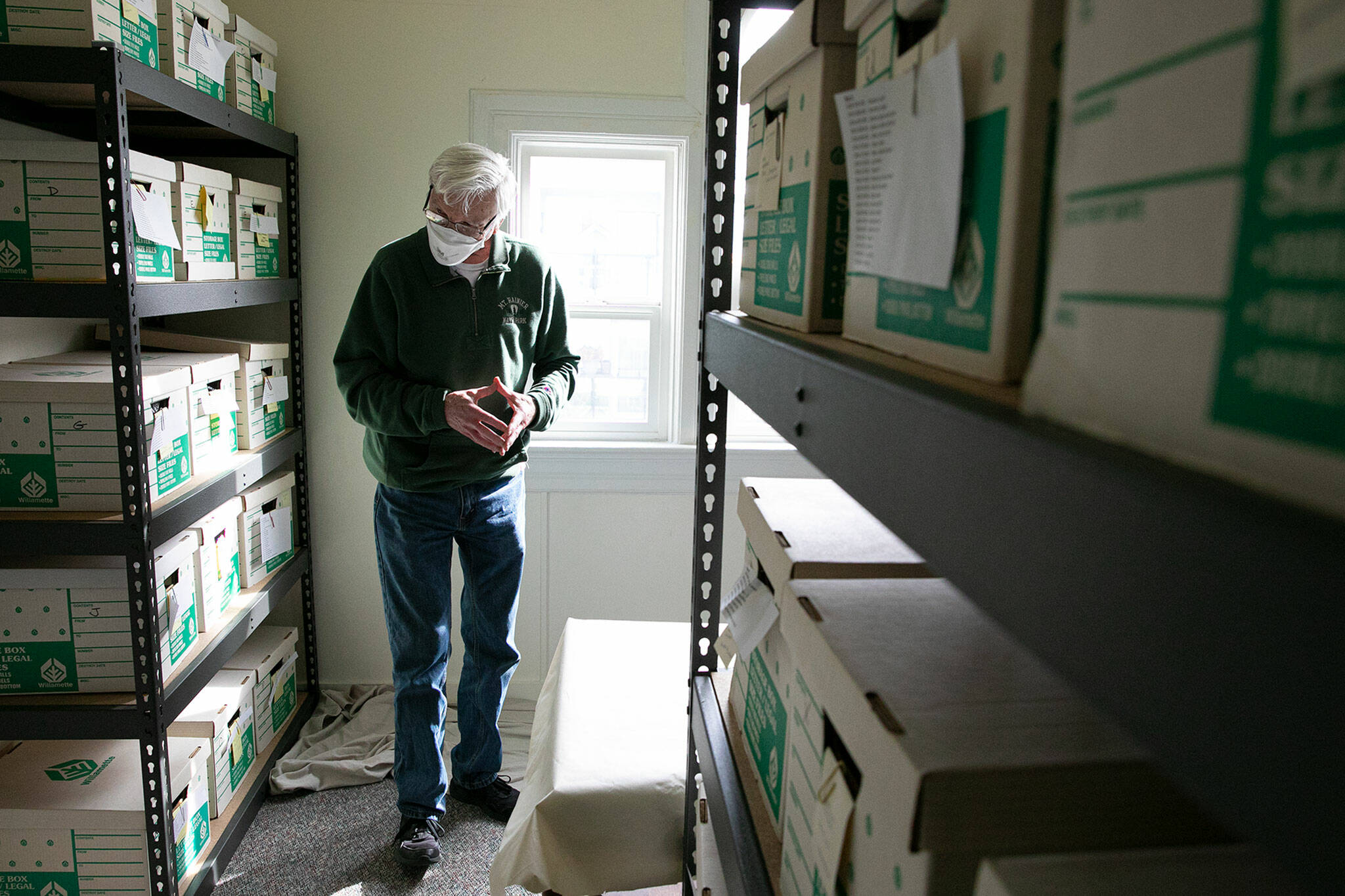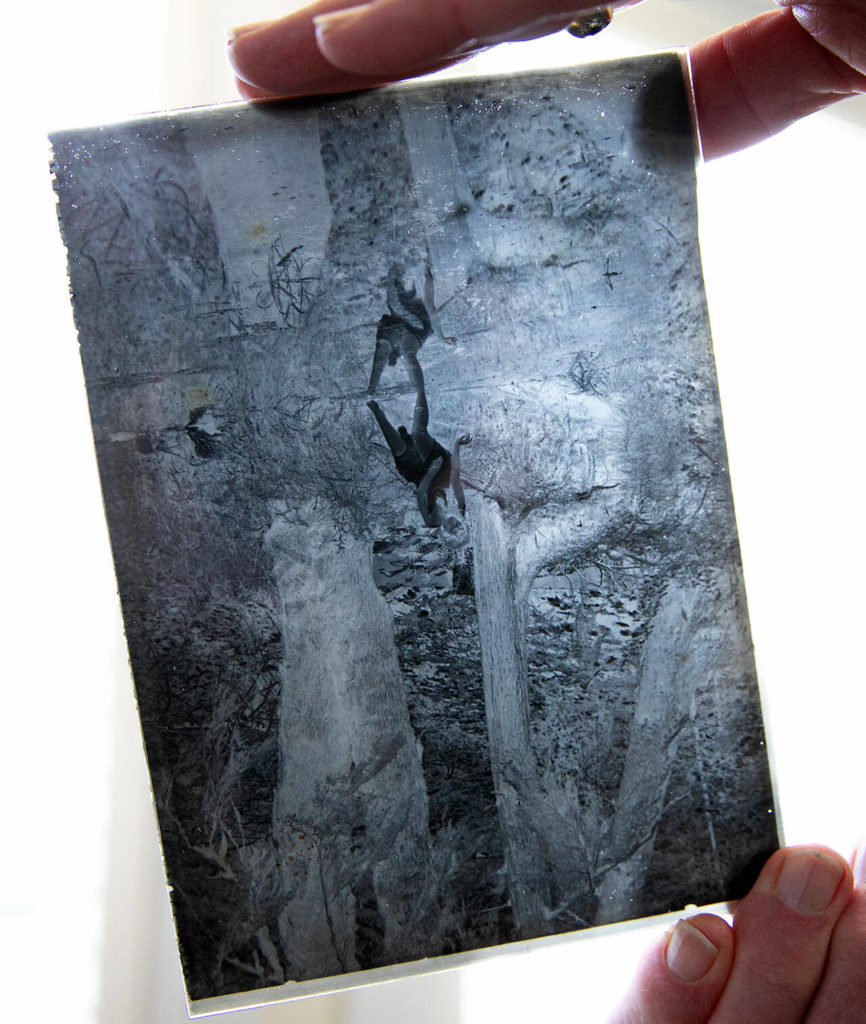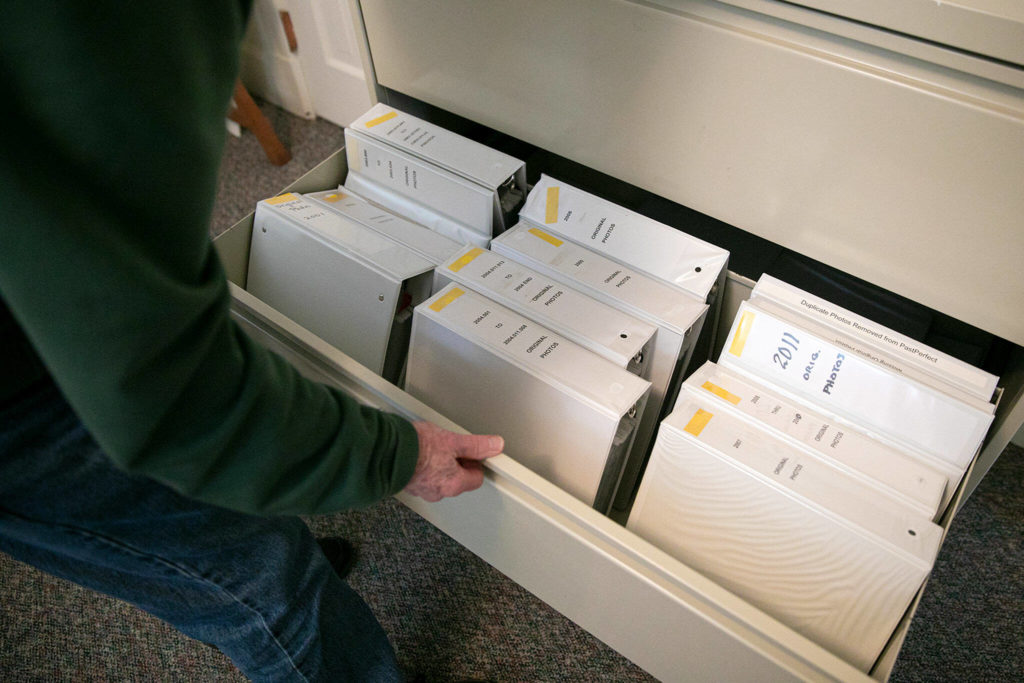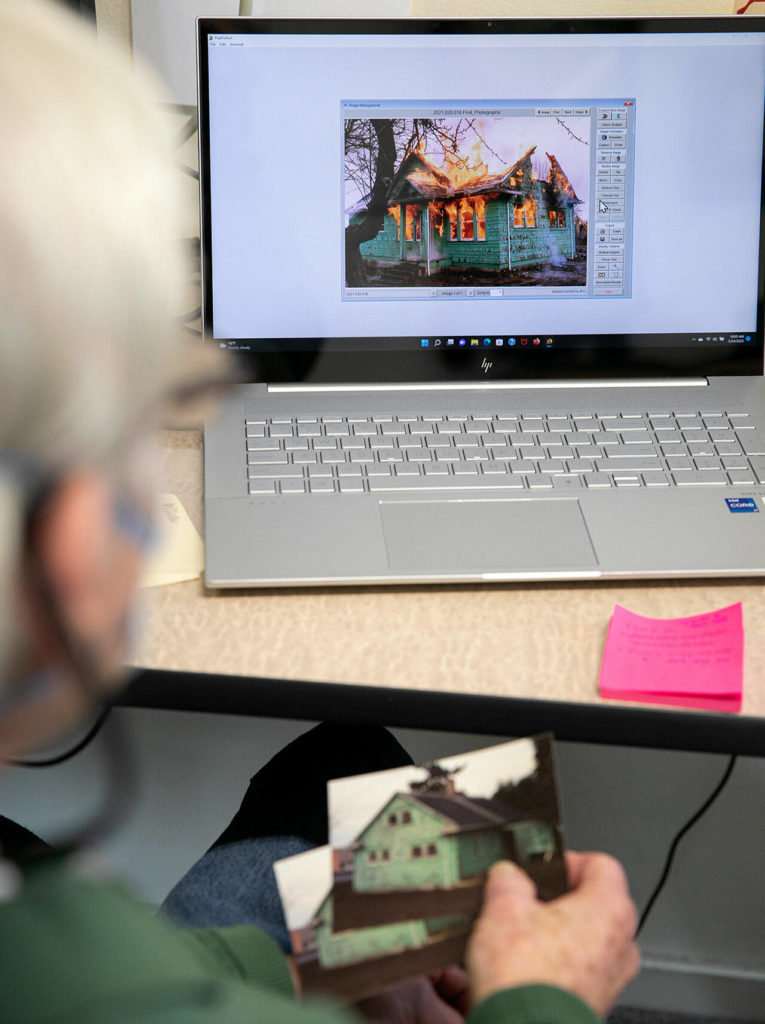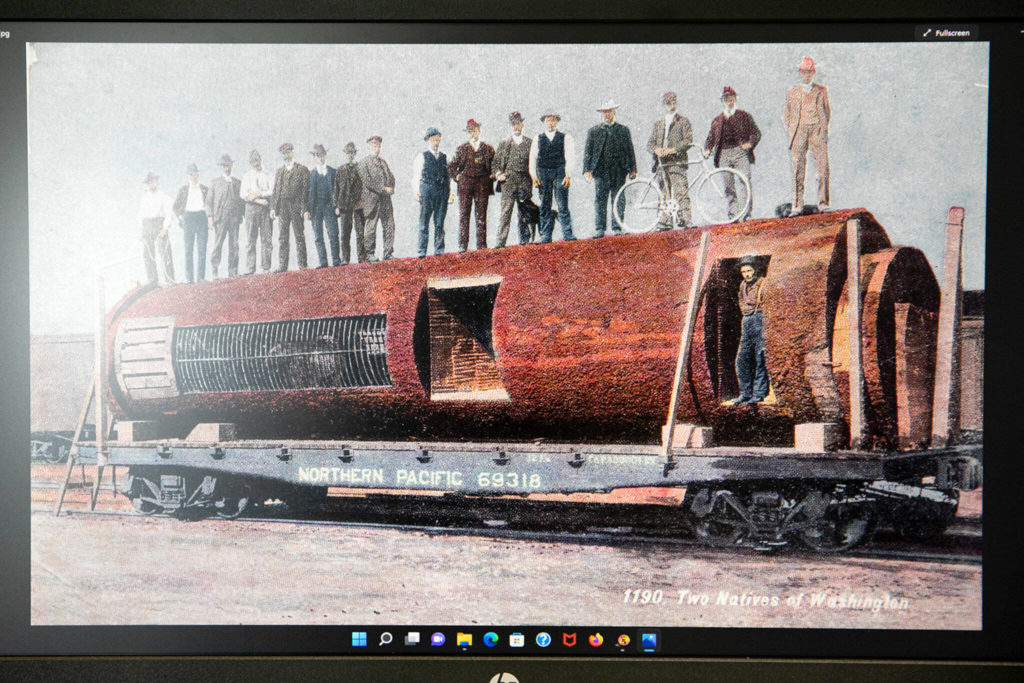MUKILTEO — Peter Anderson knows Mukilteo like the back of his hand.
As a director of the Mukilteo Historical Society, he can tell you about the lighthouse’s short-lived automatic foghorn. Short-lived because a rogue beam of moonlight could accidentally trigger the noisy horn.
He can tell you the story of how the original Rosehill school burned down in the 1920s, and how it took less than a year for locals to rebuild it.
He can name his favorite lighthouse keeper: Norwegian-born Peter Christiansen, who was assigned to the post in 1906 as a reward for “his efforts to save some drunken sailors,” Anderson said.
Anderson sometimes dons a lighthouse keeper’s uniform with Christiansen’s name on it, traipsing down the street during the Mukilteo’s Lighthouse Festival shouting: “Mukilteo Historical Society! Please join! Keep the light burning!”
Even for Anderson, there’s more to be understood about the town’s past. The society’s archive team (or “A-team”) catalogues old photos every year. But binders of old negatives have lingered untouched on a wooden shelf for years. The team doesn’t have the technology to process them or uncover the stories they hold.
That’ll change this year. With a $4,900 grant from the county, the society plans to buy fireproof storage for the negatives and the equipment to digitize them.
“Which will allow us to quickly — well, I don’t know about quickly …” Anderson tapered off.
The process is tedious. And the historical society tries to pin down the local significance of each photo.
Sometimes that’s impossible. For example, Anderson “wouldn’t even venture a guess” on the mysterious photo of a massive hollow log on a train car, with a live bear inside and a line of men standing on top. He said that’s likely the “wackiest” photo in the collection.
In the old keeper’s quarters, Anderson pulled out a glass plate negative, from before film was even invented. It’s big enough to see the inklings of a mysterious image — a woman across the water, dipping her toes under towering trees.
As for what’s on the rest of them, “it’ll be a mixed bag,” Anderson said.
He estimated there are a few hundred of them. Maybe more.
“I found some more for you over here,” volunteer Ann Collier said from across the room, lifting a yellow envelope from a cluttered table. She said it was sent by a former lighthouse keeper. She suspects the negatives document past renovations. The lighthouse used to house bulky air compressors that sounded the foghorn. Keepers had to constantly refuel the kerosene lamp in the tower and wind up the clock-like mechanism that kept it turning.
Anderson moved to Mukilteo six years ago from Massachusetts. He got into history when he arrived and got involved with the society.
“And thank goodness he did,” Collier said, adding that Anderson is the tech wizard of the group.
He’s got a handle on the museum-grade archiving software, even though he’s not a youthful tech-head anymore.
“I think I recently turned 81,” Anderson told The Daily Herald.
The photos will add to a growing body of archives stored at the light station. It’ll reopen to the public in early May.
“What we really need is a museum,” he said. “All this stuff really cries out to be on display somewhere.”
With a tight budget, that’s still a far-off dream. With or without a museum, though, Anderson still finds joy in the archives. Upstairs, he moves through boxes and boxes of historical objects.
“Do you want to know something wacky?” he said. “One of these boxes should have a radioactive sign on it.”
Spoiler: It has some discontinued orange Fiestaware, a vintage dish set with radioactive uranium oxide in its glaze.
There’s also a nearly six-foot ship steering wheel in the attic, a partially restored “Muk boat” designed by the original Losvar family and vintage school desks. There’s an infographic dedicated to fires in Mukilteo, like the one that consumed the school.
It’s why Collier is excited to get her hands on that fireproof storage.
“The fact that these are wooden buildings is scary enough,” she said.
Currently, the negatives are kept in binders on a wooden shelf.
“These things are precious,” Anderson said. “We don’t want to lose these.”
Claudia Yaw: 425-339-3449; claudia.yaw@heraldnet.com. Twitter: @yawclaudia.
Talk to us
> Give us your news tips.
> Send us a letter to the editor.
> More Herald contact information.
